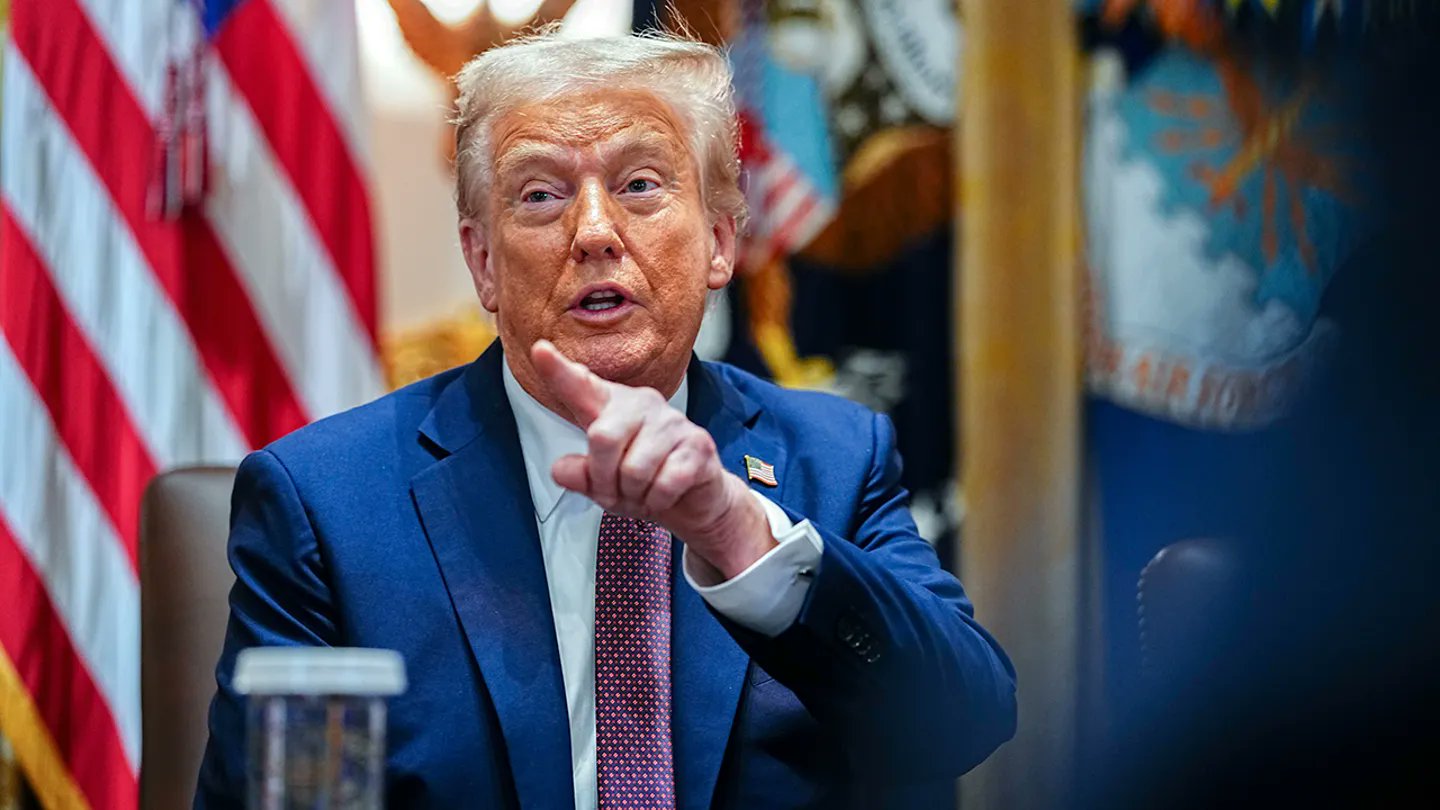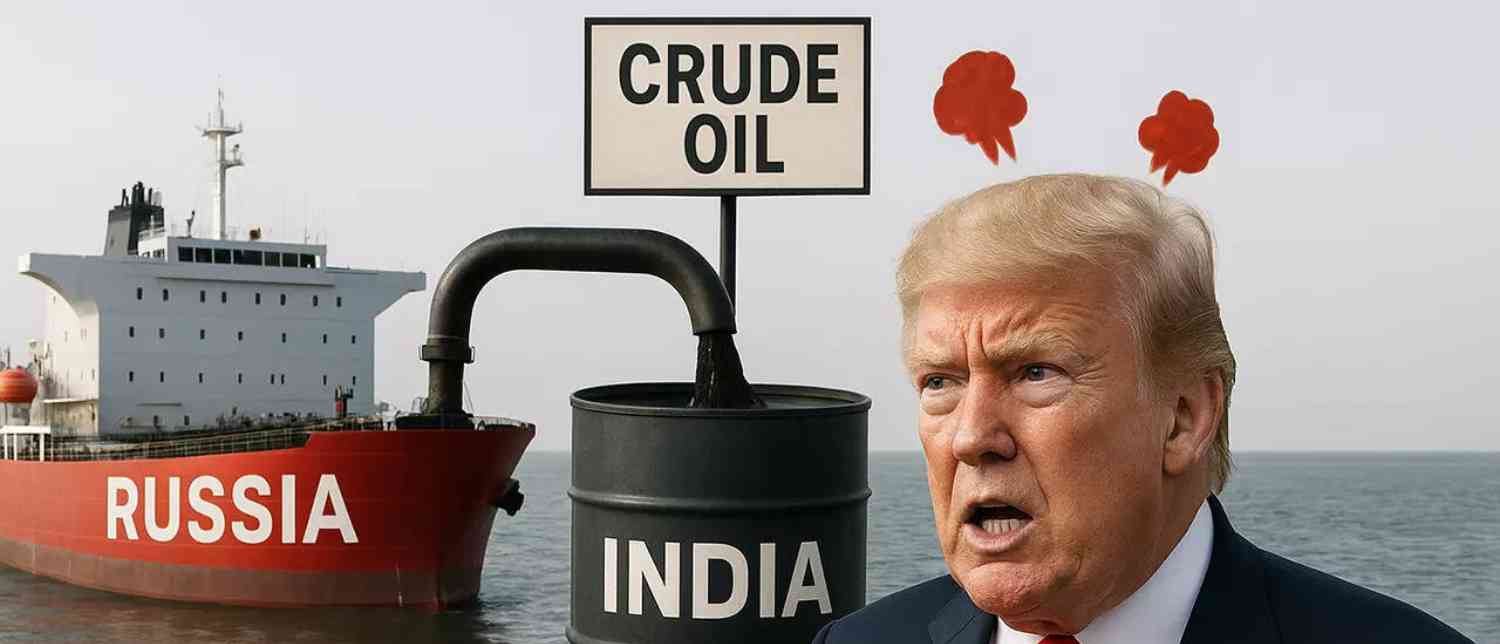US President Donald Trump has once again lashed out at European nations for continuing to buy Russian oil, accusing them of undermining sanctions efforts and indirectly funding Moscow’s war in Ukraine.
“Europe is buying oil from Russia. I don’t want them to buy oil—and the sanctions they’re putting on are not tough enough,” Trump said. “I’m willing to do sanctions, but they’re going to have to toughen up their sanctions commensurate with what I’m doing.”
The President criticized NATO allies for what he called a “soft” stance, stressing that Washington is prepared to impose harsher penalties on Moscow only if Europe matches US actions. He highlighted the contradiction between Europe’s public condemnation of the Kremlin and its continued energy purchases, calling the practice “shocking” and a sign of weakness in negotiations with Russia.
“Just to clarify, you wouldn’t move ahead until NATO moves ahead. Well, I’m ready to move ahead, but they have to do it. But right now they’re talking and they’re not doing. Look, they’re buying oil from Russia. We’re not buying oil from Russia. They’re buying a lot of oil from Russia. That’s not the deal,” Trump said.

Sanctions, Tariffs, and Trump’s Mediation Bid
Trump has repeatedly positioned himself as a potential mediator in the Ukraine war. However, his approach has leaned heavily on punitive measures, particularly sanctions and tariffs, to cut Russia’s energy revenues and pressure its allies.
The US President recently threatened additional sanctions after Russia launched its largest-ever aerial barrage against Ukraine. He has also floated the idea of NATO collectively imposing 50% to 100% tariffs on China, which he claims is giving Moscow economic and strategic backing.
“I believe that (NATO sanctions on Russia), plus NATO, as a group, placing 50% to 100% tariffs on China, to be fully withdrawn after the war with Russia and Ukraine is ended, will also be of great help in ending this deadly, but ridiculous, war,” Trump argued. “China has a strong control, and even grip, over Russia, and these powerful tariffs will break that grip.”
“If the alliance does as I say, the war will end quickly. If not, you are just wasting my time,” he added, issuing a stark warning to NATO allies.
China Hits Back: “We Don’t Plan Wars”
Beijing has strongly rejected Trump’s tariff threats. Chinese Foreign Minister Wang Yi, speaking after a meeting with Slovenian Foreign Minister Tanja Fajon, emphasized that China does not support war as a tool of international politics.
“China does not participate in or plan wars, and what China does is to encourage peace talks and promote political settlement of hotspot issues through dialogue,” Wang said. He warned that sanctions would only complicate conflicts and advocated for multilateral cooperation and adherence to the UN Charter.
Wang also urged closer EU-China ties, stating: “China and Europe should be friends rather than rivals, and should cooperate rather than confront each other.” His remarks were widely seen as a pushback against US efforts to rally NATO against Beijing.
The rebuttal followed Trump’s remarks accusing Chinese President Xi Jinping of “conspiring against” the United States, even as he maintained that his personal relations with China’s leadership remained “very good.”
India Caught in the Middle: Tariffs and Strategic Balancing
India has also found itself in Trump’s crosshairs. The US President imposed a 50% tariff on Indian imports in response to what he described as New Delhi’s “massive oil purchase” from Russia. The move added strain to US-India ties, though Trump was careful to stress his personal friendship with Prime Minister Narendra Modi.
“I’ll always be friends with PM Modi. He’s a great Prime Minister. I’ll always be friends, but I just don’t like what he is doing at this particular moment. But India and the United States have a very special relationship. There is nothing to worry about. We just have moments on occasion,” Trump remarked.
PM Modi responded diplomatically, emphasizing the strength of the US-India partnership. “Deeply appreciate and fully reciprocate President Trump’s sentiments and positive assessment of our ties. India and the US have a very positive and forward-looking Comprehensive and Global Strategic Partnership,” he said.
Russia Defends Its Partnership with India
In contrast, Moscow has openly praised its growing ties with India and dismissed US pressure. The Russian Foreign Ministry said relations with India are “steadily and confidently advancing,” describing attempts to harm the partnership as “destined to fail.”
“Russia and India relations are steadily and confidently advancing. Any attempt to obstruct this process is destined to fail,” the ministry stated. It hailed the partnership as one rooted in “strategic autonomy in international affairs” and built on sovereignty and national interests.
The ministry highlighted large-scale collaborations between the two nations in civilian and military production, space missions, nuclear power, energy exploration, financial systems, and alternative trade routes.
The Kremlin’s strong defense of India underscores the geopolitical balancing act New Delhi faces as it maintains deep ties with Russia while strengthening its partnership with the United States.
.@POTUS: "Europe is buying oil from Russia. I don't want them to buy oil — and the sanctions that they're putting on are not tough enough. I'm willing to do sanctions, but they're going to have to toughen up their sanctions commensurate with what I'm doing." pic.twitter.com/ch5zSZdJ8n— Rapid Response 47 (@RapidResponse47) September 14, 2025
A Geopolitical Crossroads
Trump’s escalating rhetoric on sanctions and tariffs underscores his strategy of economic pressure as a pathway to ending the Ukraine war. Yet reactions from Europe, China, and India highlight the deep divides over how to handle the conflict.
-
Europe continues to rely on Russian energy despite criticism.
-
China rejects sanctions and stresses diplomacy over confrontation.
-
India insists on strategic autonomy while balancing US and Russian ties.
-
Russia defends its partnerships and expands cooperation with non-Western allies.
For Trump, the key argument remains simple: without stronger sanctions and tariffs from NATO allies, Moscow will continue to profit from energy revenues, prolonging the war. Whether his approach can unify the alliance or drive deeper geopolitical rifts remains to be seen.
With inputs from agencies
Image Source: Multiple agencies
© Copyright 2025. All Rights Reserved. Powered by Vygr Media.

























